Is Keurig Coffee Healthy? Unraveling the Truth Behind Your Cup
Are you like me, drawn to the convenience of a Keurig coffee machine but find yourself wondering, “Is Keurig coffee healthy?” It’s a question that’s kept me up many caffeine-induced nights. Like many of you, I’ve heard whispers about potential safety issues with the materials in K-Cups and potential chemical hazards – it’s enough to make any coffee lover pause.
In this article, we’ll cut through the uncertainty, diving deep into the components and risks associated with Keurig coffee, while also shedding light on its potential benefits. By the end of this exploration, we’ll both be able to make more informed decisions about our daily brew and take steps towards enjoying it in the healthiest possible way.
Unveiling the Composition of Keurig K-Cups
Keurig K-Cups have become a staple in many households due to their convenience and speed. However, what really goes into these small pods, and how do these components impact our health?
What Are K-Cups Made Of?
K-Cups consist of three primary components: the plastic cup itself, a filter paper layer, and an aluminum foil top. Each component is carefully selected and manufactured to adhere to FDA safety standards. The plastic used is designed to withstand the high temperatures required for brewing, ensuring that it does not release harmful chemicals into your coffee.
This multi-layered construction offers the convenience and efficiency that Keurig coffee makers provide. For many of us, this is a daily ritual that promises a quick caffeine fix without the mess, but have we ever paused to consider the potential health implications?
The Potential Threats of Plastic and Aluminum
While Keurig K-Cups are crafted to meet safety guidelines, concerns about the materials used, especially under high heat conditions, are growing. One significant issue is the potential health effects of aluminum. When subjected to high temperatures, there is a risk of aluminum particles leaching into the coffee, posing possible health risks over time.
Additionally, the plastic components of K-Cups can release harmful chemicals when heated. These substances may disrupt hormonal functions, which can lead to issues like weight gain, hormonal imbalances, fertility problems, and even depression.
The debate over whether Keurig coffee is healthy continues, as more research is needed to fully understand these risks. To mitigate these potential hazards, it is crucial to follow best practices:
- Choose reusable K-Cups
- Opt for organic coffee
- Ensure your Keurig machine is properly maintained
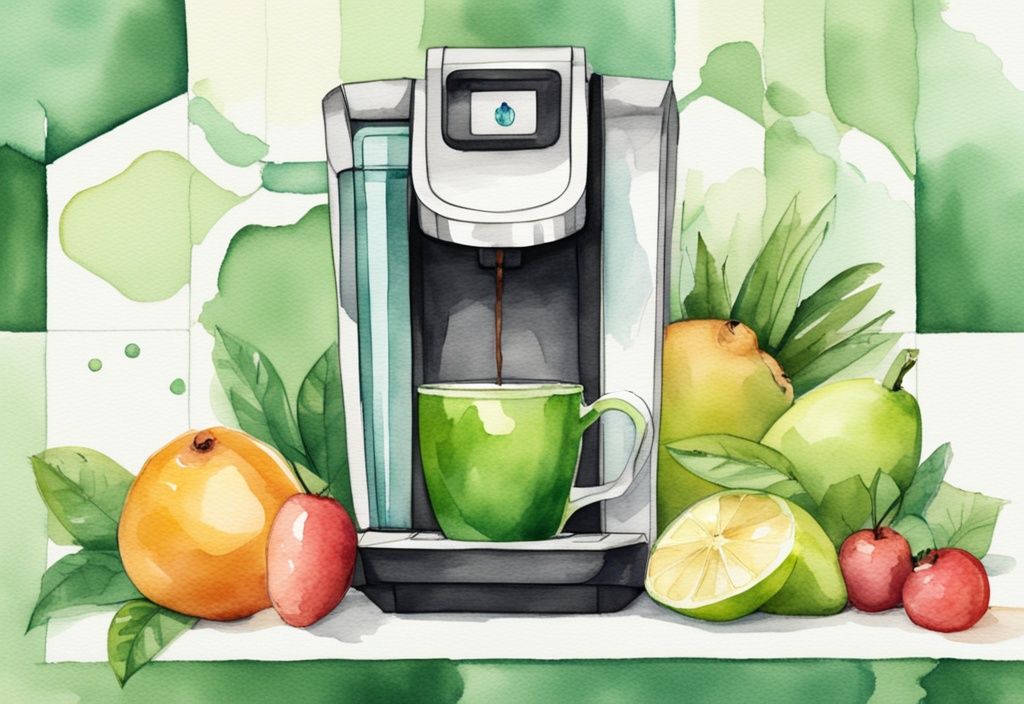
Considering these options not only protects your health but also positively impacts the environment. Taking small steps can lead to significant changes, fostering a healthier lifestyle for you and the planet.
Chemical Hazards Lurking in Keurig Coffee
Keurig coffee may come with a side of chemical hazards that could impact your health. While the convenience of K-Cups is undeniable, it’s important to delve deeper into what might be leaching into your morning brew.
Chemicals That May Leach from K-Cups
Keurig K-Cups are made without BPA (Bisphenol A), but that doesn’t mean they are free from other concerning chemicals. There’s BPF (Bisphenol F) and BPS (Bisphenol S) in the plastic cups, which may still pose significant health risks. Even though these chemicals are considered safer alternatives to BPA, they can still disrupt your endocrine functions.
Personally, when I first started using K-Cups, I didn’t think much about these issues. However, learning that chemicals like BPF and BPS could interfere with hormone function and contribute to health problems such as weight gain and fertility issues changed my perspective. But that’s not all. For instance, switching to healthier beverage options can also make a difference. Have you ever wondered, what is organic tea?
Potential contaminants such as mycotoxins, acrylamide, and furan can also make their way into your coffee. Mycotoxins, specifically Ochratoxin A and Aflatoxin B1, are toxic compounds produced by fungi that can contaminate coffee beans. These toxins have been linked to serious health conditions, including kidney damage.
Acrylamide and furan are formed during the coffee roasting process and are associated with risks of cancer and neurological damage. When you consider these risks, it brings you to the inevitable question: is Keurig coffee healthy? For a deeper understanding of the health implications of coffee consumption, you can explore this [study published in the International Journal of Environmental Research and Public Health](https://www.ncbi.nlm.nih.gov/pmc/articles/PMC9736995/).
The Impact of Heating Plastics on Health
Heating plastics, a process inherent in brewing with Keurig machines, further complicates the issue. When these plastics are heated, harmful chemicals like BPF and BPS can migrate into your coffee. Over time, the continued ingestion of these substances could lead to chronic health problems.
I remember my own journey of gradually switching to safer alternatives. It began with understanding that continual exposure to these chemicals could have subtle yet significant effects on my health, including hormonal imbalances and even psychological conditions like depression.
The long-term effects of these chemicals accumulating in your body are even more worrisome. This cumulative exposure might increase your likelihood of developing chronic diseases. When weighing the convenience of K-Cups against these potential hazards, it becomes a personal decision to protect your health.
Switching to non-toxic alternatives can feel daunting, but every small step counts. Think of it as investing in your long-term well-being. The journey towards non-toxic living is a rewarding one, not just for you but also for the planet.
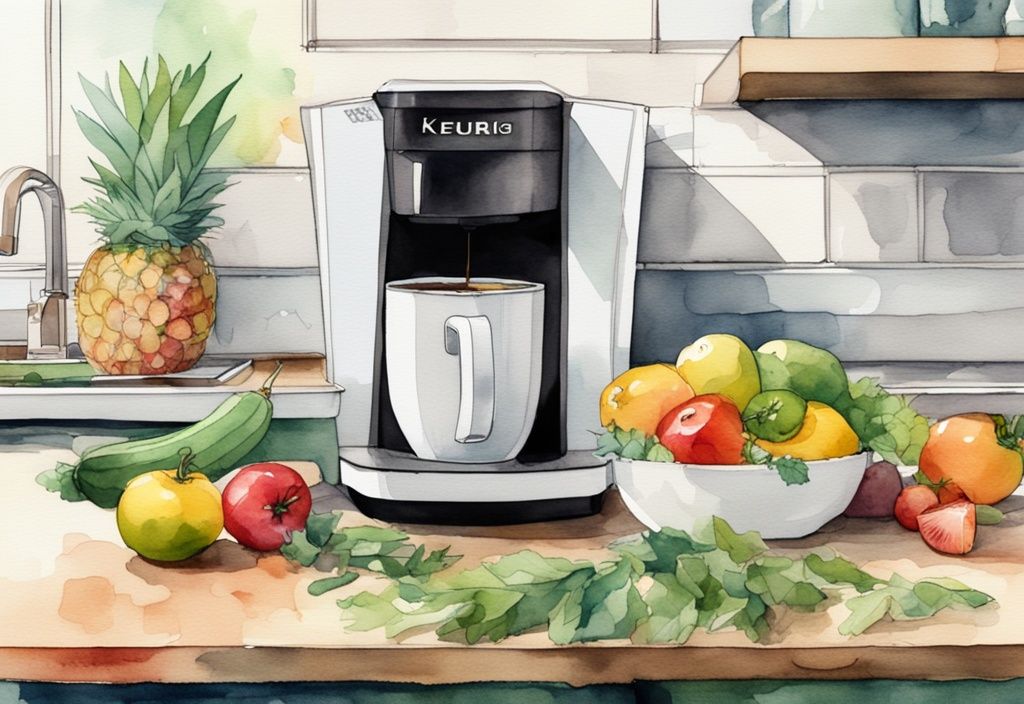
The Health Benefits of Keurig Coffee
Boost Your Cognitive Function and Energy Levels
Wondering is Keurig coffee healthy for your cognitive function and energy levels? Absolutely, it can be. One of the primary benefits lies in its caffeine content, typically ranging from 75 to 150 mg per 8 oz cup. Caffeine is a well-known stimulant that boosts metabolism, enhances mental alertness, and sharpens focus.
For me, starting the day with a cup of Keurig coffee has become a cherished routine. I’ve noticed how it significantly heightens my productivity and energy levels. When consumed in moderation, Keurig coffee can provide the gentle but effective boost many of us need to tackle our busy mornings.
Antioxidant-rich – Beyond Just A Cup of Coffee
Is Keurig coffee healthy in terms of antioxidant content? Without a doubt. Some K-Cups are specially formulated to include added antioxidants, highly beneficial for health. These antioxidants help prevent cell damage and chronic diseases.
Coffee itself is a rich source of antioxidants, playing a crucial role in protecting against inflammatory conditions and certain types of cancer. Regular consumption has been linked to a reduced risk of neurodegenerative diseases such as Parkinson’s and Alzheimer’s. So, savoring your daily cup of Keurig coffee can indeed contribute positively to your overall well-being.
Striking a Balance: Mitigating Health Risks of Keurig Coffee
Striking a balance in your coffee habits can significantly reduce potential health risks associated with Keurig coffee. From choosing organic coffee to maintaining your machine, small changes can make a big difference in answering the question, “is Keurig coffee healthy?”
Steps Towards a Healthier Keurig Coffee
Choosing Organic and Using Reusable K-Cups
Using reusable K-Cups filled with organic coffee is a significant step towards a healthier Keurig coffee experience. Organic coffee beans are grown without harmful pesticides and herbicides like glyphosate, which drastically reduces potential chemical exposure. By filling reusable K-Cups yourself with these beans, not only do you ensure a fresher brew, but you also significantly cut down on plastic waste. Moreover, opting for compostable coffee pods can be an eco-friendly alternative that minimizes environmental pollution. For those curious about sustainable products, you might wonder, is Burt’s Bees lip balm good for the environment? This practice poses a dual benefit: protecting your health and supporting a more sustainable lifestyle.
Why Regular Cleaning and Maintenance is Crucial
Maintaining a regular cleaning schedule for your Keurig machine is crucial to prevent the growth of bacteria and mold, which can compromise your coffee’s safety. Over time, coffee residue and mineral buildup can harbor harmful microorganisms. Regular descaling of the machine not only ensures that you are brewing safe, contaminant-free coffee, but it also enhances the machine’s performance and longevity. A well-maintained Keurig provides an optimal brewing environment, making it easier to answer “is Keurig coffee healthy?” affirmatively, provided other practices also aim for safety and health.
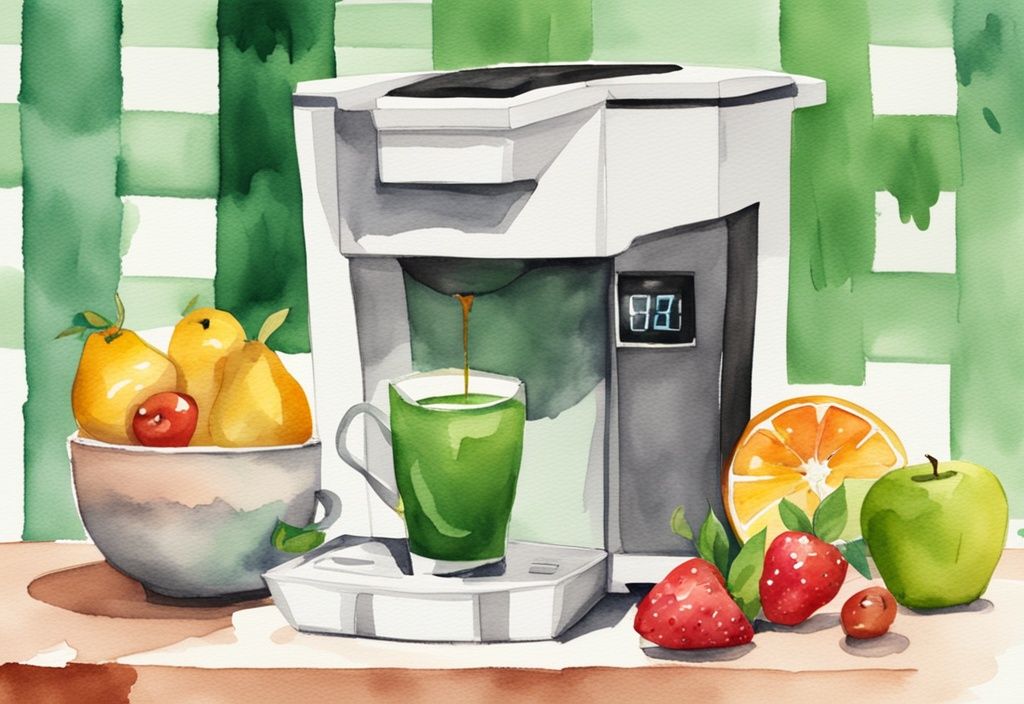
Moderation in Consumption: Your Key to a Healthier Experience
Monitoring your caffeine intake is essential to avoid potential health issues such as addiction, insomnia, and anxiety. Excessive caffeine can also increase the risk of depression. Balancing Keurig coffee consumption with a healthy diet and active lifestyle helps avoid these pitfalls.
Furthermore, limiting the use of sugar, cream, and other high-calorie additives can help maintain a healthier coffee habit. This mindful approach ensures that despite the convenience of Keurig, you are making health-conscious choices. To truly answer “is Keurig coffee healthy,” it’s vital to harmonize how much coffee you drink with overall wellness practices. This balance helps mitigate the risks associated with overconsumption and maximizes the benefits of enjoying your favorite brew.
By implementing these steps, you can enjoy the convenience of Keurig coffee while minimizing potential health risks, making your coffee habit both enjoyable and healthier.
FAQ
Is Keurig Coffee Healthier Than Traditional Brewed Coffee?
When it comes to health, freshly brewed organic coffee generally takes the crown. However, Keurig coffee has its pitfalls primarily due to the packaging and brewing process which may introduce harmful substances. The overall health impact depends on various factors including the type of coffee used, the additives incorporated, and the methods of preparation.
Think of it this way: while I adore the convenience of a quick cup from my Keurig machine, I also remain cautious about what’s in my cup. Organic and freshly ground coffee offers a purer essence, free from the potential chemicals found in some K-Cups. Don’t forget, health isn’t just about the coffee itself but also what you add to it and how it’s made.
How To Minimize Health Risks Associated with Keurig Coffee?
There are proactive steps you can take to enjoy your Keurig coffee with peace of mind:
- Use reusable K-cups with organic coffee: This significantly reduces exposure to any chemicals leached from plastic K-Cups.
- Keep your Keurig clean: Regular cleaning prevents the growth of bacteria and mold, keeping each cup safer.
- Moderation is key: Enjoy your coffee, but watch out for excessive sugar and cream, which can add unnecessary calories and impact health.
- Choose dark-roasted, certified organic coffee: Dark roasts often have lower levels of harmful compounds, and certified organic coffee guarantees that your coffee is free from synthetic fertilizers and pesticides.
By making these mindful choices, you ensure that your love for Keurig coffee doesn’t compromise your health. It’s about striking a balance and making informed decisions that align with your well-being goals.
Hi, I’m Olivia Green, the voice behind nontoxicways.com. I’m passionate about helping you make the shift to a healthier, non-toxic lifestyle without feeling overwhelmed. I love sharing my personal journey, from small changes to big transformations, along with practical tips that make it all feel doable. My goal is to inspire and guide you toward a lifestyle that benefits both your well-being and the planet. Let’s take this journey together, one simple step at a time!

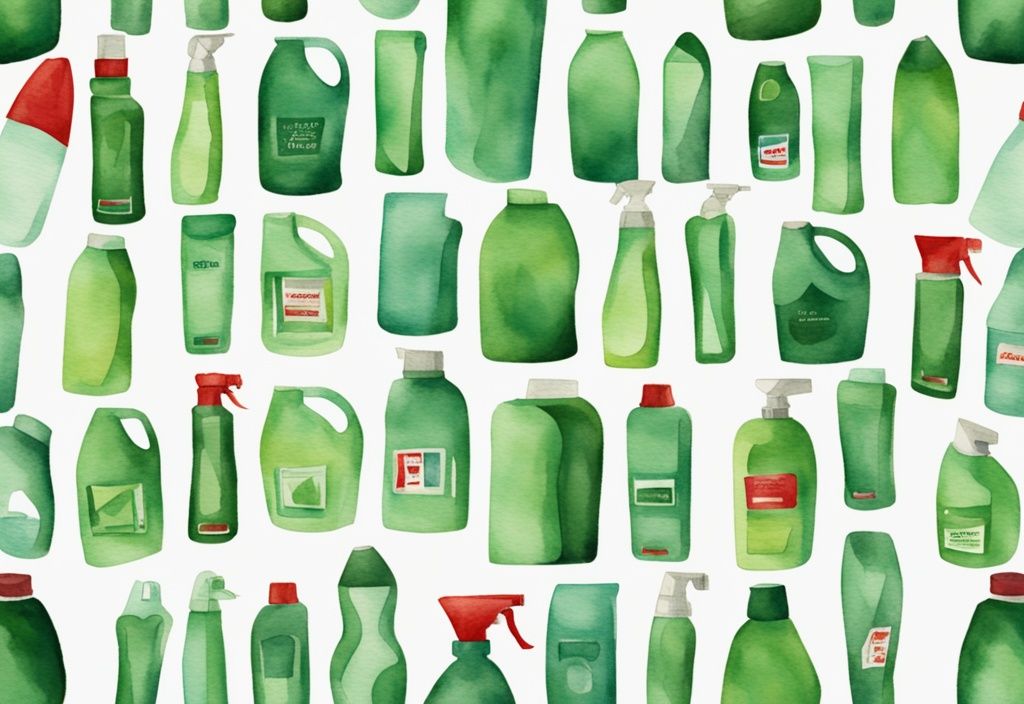


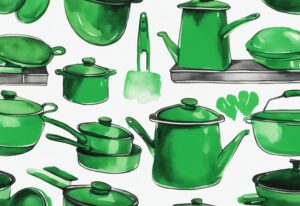



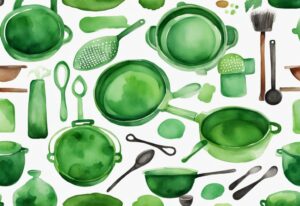



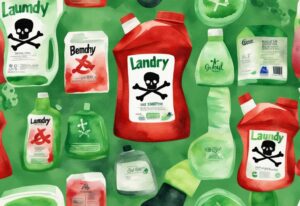

Post Comment